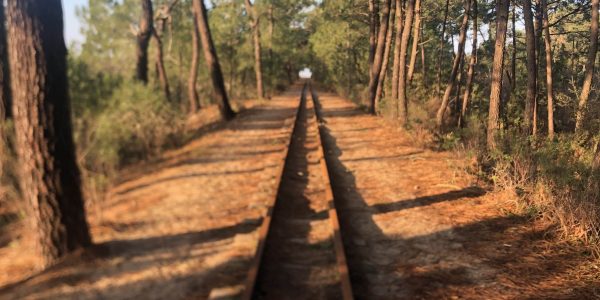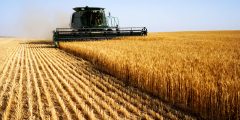Lexi Earl
View this author's profilePosts by Lexi Earl
Imagining the sustainable supply chains of the future: an interview with Dr Christine Roussat
March 2, 2023
Can we imagine future sustainable supply chains and food systems? Today we talk with Dr Christine Roussat, a visiting researcher with the University of Nottingham Business School. Christine is an Associate Professor in the IUT at the Université Clermont-Auvergne in France. They are interested in the use of fictions in shaping the world of tomorrow, …
Disease susceptibility and genes in wheat
January 24, 2023
Last week we explored the ways scientists are working to diversify wheat genes to combat vulnerabilities to disease. This week, PhD candidate Nicola Walter takes us on a deep dive into gametocidal genes – selfish elements that preferentially transmit themselves to new plants by destroying those chromosomes that don’t have the gene. Gametocidal genes Genetic …
Diversity in wheat and the potential solutions
January 16, 2023
Wheat is one of the most essential crops in modern day diets. Alongside rice and soy, wheat is a staple food for many and a fundamental ingredient in many food stuffs. In this blog post, PhD candidate Nicola Walter outlines how diversity in wheat has been affected by generations of breeding, and the different ways …
Completing a PhD: Dr Chris Chagumaira reflects
December 13, 2022
Dr Christopher Chagumaira successfully defended his PhD thesis in September 2022. He was part of the first cohort of PhDs with the UoN-Rothamsted Graduate Centre for International Agriculture. His thesis focused on understanding and communicating uncertainty in spatial predictions of soil micronutrients for various stakeholders (including policymakers, farmers, and managers). He is now a Research …
The legacy of soil surveys
December 5, 2022
December 5 is World Soil Day. According to the UN, the purpose is to ‘focus attention on the importance of healthy soil and to advocate for the sustainable management of soil resources’. In this post, Prof Murray Lark reflects on the history of soil surveys and how they can aid our understanding and practices of …
Can we improve heat tolerance in rice? An interview with Dr Jordan Robson
November 29, 2022
Jordan Robson works on heat tolerance in rice populations. She is a Postdoctoral Research Fellow with the Palaeobenchmarking Resilient Agricultural Systems project. Prior to this she completed her PhD in Prof Zoe Wilson’s lab in Plant Sciences at UoN. Tell me about your work. What is your research about? My research is based on …
How do we feed the world in the face of global population growth, changing demographics and climate change?
November 21, 2022
This post is written by Prof Andy Salter While the implications of, and solutions to, climate change, were discussed at COP27, two major global demographic landmarks were reached. The global population reached 8 billion and the population of India now matches that of China. These figures highlight the multifactorial challenges we face in ensuring adequate …
Improving the drought tolerance of pearl millet
November 14, 2022
Today at COP27 the focus of discussions is on water. Ensuring agricultural crops are resilient to drought, especially in the face of climate change is a huge undertaking but extremely important. Our researchers are investigating ways to make pearl millet more drought tolerant and ensure nutrient uptake. Pearl millet is a key crop that contributes significantly …
How should uncertainty in spatial information be communicated?
November 12, 2022
This post is written by Dr Christopher Chagumaira with contributions from Prof Murray Lark. Many and varied people have to make decisions about environmental management, be they farmers, policy-makers or managers, and spatial information about environmental variables (e.g., soil properties) is essential for this task. Within the Future Food Beacon, the GeoNutrition project is concerned …
Soils and decarbonisation: What future for agriculture?
November 11, 2022
It is decarbonization day at COP27 today. One of the ways to reduce carbon is capturing it in the soil. Soils are hugely important for our futures here on this planet. But how do soils capture carbon? And how can we develop agricultural practices that better support carbon sequestration in soils? In this post, Malcolm …



Recent Comments